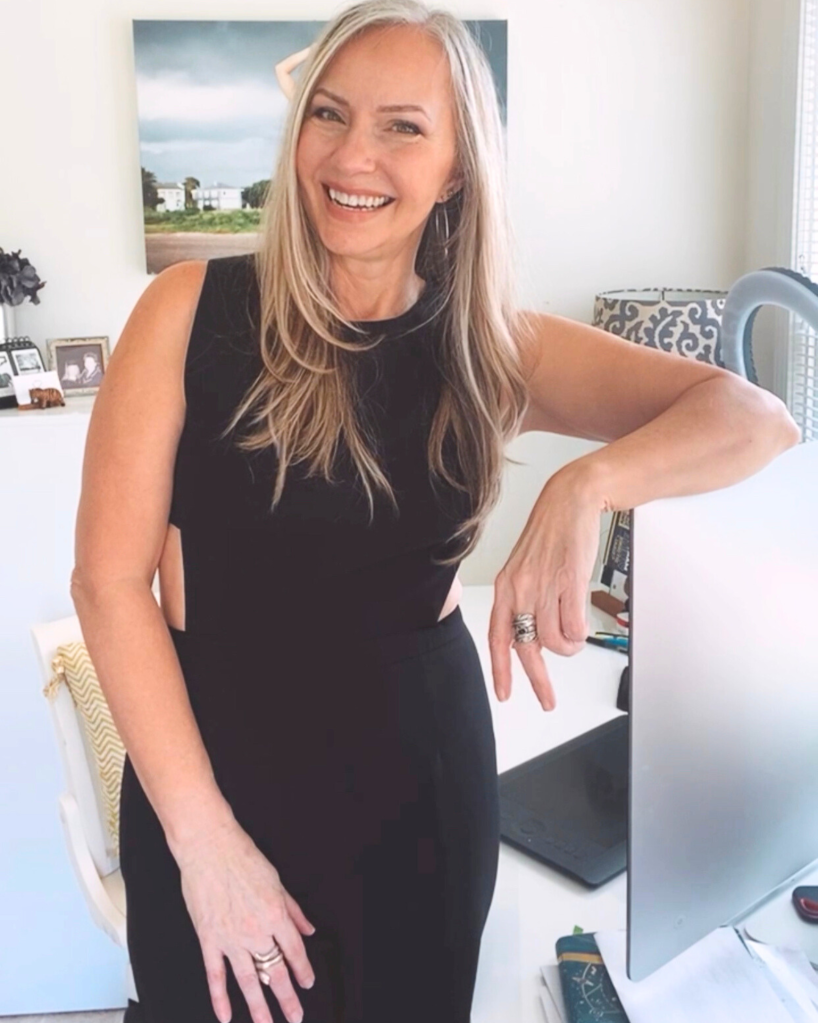Are you findable? Yes, that is a question to ask yourself, especially if you are currently in job search. Being “findable” is extremely important. There are hiring managers and decision makers out there right now looking for someone like you, but can they find you.
In job search, everyone has a resume to hand out or email to someone. Job seekers are also creating LinkedIn profiles, yet many only do the absolute minimum to get noticed. A personal website is a surefire way to capture the interest of hiring managers and a perfect resource to supplement the traditional customized resume and cover letter.
Which leads into the question,
How does a personal website help someone become more findable or improve their job search results?
First, it gives hiring managers a glimpse into your personality. A website gives you creative freedom to express your personality in ways that are not be possible through your resume or even through LinkedIn. Everything from the bio paragraph you write to the design options you choose for your website says something about you, and gives recruiters and hiring managers more chances to decide if they want to bring you in for an interview.
Two, having an informative, well designed website also sends a message that you take your career seriously—and employers will notice that.
Third, it offers visibility. I have heard so many times (and strongly believe) that showing up is half the battle. We know that in the age of the internet, a very high percentage of employers are researching job applicants online and that includes social media, and owning your own website with your name in the domain gives you a great shot at showing up when someone searches for you. This allows YOU to control your narrative.
A website or blog acts as your main hub of information on you. A place that you can control and all your other online profiles, bios, etc will point back to you and vice versa.
The content of a personal website may vary greatly depending on the industry and position being targeted, however, there are several common elements that all job seekers’ personal websites should include. You’ll also want to be careful with how much personal information you include on the site. The goal is to keep information interesting, but relatively neutral. Avoid providing information that might be controversial such as religious or political views. Always keep the word ‘relevance’ in mind. Ask yourself: Is this relevant to the employer and to the position?

Here’s what a personal career website should have:
A focus. If you’re going to create a website, you need to know why. What is the purpose of the site? Who will read it? What skills and information do you want to highlight? If the primary purpose is to get a job in a specific field, then your website needs to focus on that.
Contact information. This may seem obvious, but it’s sometimes overlooked. Make certain that employers can easily contact you if they are provided with your website without any accompanying background information. Ideally, your name and contact information would be in the header or footer of every page. Leave off your home address and keep contact information more general–such as your name and e-mail.
A professional headline. If someone asks you what you do at a networking event, you probably have a one- to two-sentence description prepared. This can be your job title or a more general description of the role you play or want to play, and it gives visitors a chance to remember you as the person who does X, as well as giving search engines more chances to display your site when people search for someone who does what you do.
A brief bio. An “about me” page can be helpful to hiring managers—but be sure to keep it professional and brief. Here you can provide any additional information that may not be on your resume or cover letter, such as interests, hobbies, or awards and accomplishments. Also you should include a professional photo. It should be a high-quality, preferably professionally-taken, headshot or wide shot. Avoid the temptation to use a smartphone photo, especially if you took it yourself.
Your resume. It’s good to include a brief overview of your resume on your personal website. You don’t want to copy it word for word—after all, your application materials will already include your resume in its entirety. Just display the highlights so the hiring manager can get a quick all-in-one glance of your skills and experience. With a quick call-to-action button in this area to send you an email to request more information.
Professional summary/objective. A short, descriptive bio helps explain to visitors what you do and how you can help them. And it will encourage visitors to keep reading.
Samples of your work. Treat the personal website like a portfolio to showcase examples of your work regardless of your profession/industry. Keep in mind that a main goal with a personal website is to not be too far-reaching or overbearing. Just as you don’t want to overwhelm the reader by cramming too much information into your resume, you should try to limit your online portfolio to your best and proudest work.
Results. Some of my favorite resume advice, which applies to websites as well, is to share quantifiable results from past jobs rather than simply list your responsibilities. Results show your value and “what” you can bring to your next position. If you brought in 30 new clients last month, that’s much more powerful than saying that you worked in sales to bring in new business. If you can attach rough dollar amounts to those results, even better. But, keep in mind that it’s not all about numbers, as there are other accomplishments that show your value, like if you were selected to lead a company-wide work project or selected to work on a board or promoted 2 times in a year.
Keywords. Using your keywords throughout your personal website/blog will help your SEO (search engine optimization) which is critical to you being found.
Links. Add links to professional associations you’re a member of; links to any articles about you or which quote you; and links to professional journals or other important readings related to your profession. This will help the potential employer know that you are committed to and knowledgeable about your profession. And link to your LinkedIn profile as well. If you do have other social media accounts that are your professional persona then yes link to those as well. Do NOT link to your personal Facebook profile.
Another plus is linking to professional podcasts or videos you’ve recorded, as well as any professional social media streams.
A blog. Typically, it’s smart to include a professional blog as part of the site, especially if you are in a creative field (i.e. journalism, photography, graphic design, fashion design, etc.). A blog is an important part of the social resume and professional website and can most especially offer a look into your opinions, how you think, and how you communicate. Writing on a consistent basis – one time per week or 2 times per month is a good goal to works towards. However, keep in mind that consistently writing blog posts is that extra step to being found.
Videos and other relevant multimedia. A website is a great way to expand the potential employer’s knowledge about you. You can include short videos where you present information or ideas related to your field, short tutorials, or other creative explanations of your work and your field. For instance, a counselor might include a short video about tips for overcoming procrastination or setting goals. If you have created a particularly good PowerPoint, your website would be a great place to display it.
Testimonials. You may want to share any positive things professionals (former co-workers or bosses, etc.) or clients have said about you. It’s best if the same testimonial also resides on your LinkedIn page, so it’s clear that it is from a real person. Don’t have any quotes yet? Reach out to previous employers and ask for their (positive) feedback.
Once you’ve developed your personal website, you’ll want to promote and utilize it in your job search. It should be the centerpiece of your online presence. Be sure to put a link to your website in your e-mail signature, on your resume and cover letter, and on social networking profiles, especially LinkedIn. If you have created personal business cards, include your web address with your other contact information there as well. If you contribute to publications or industry message boards, share a link there, too.
In the end, creating this center hub of information about you, will help establish you and create opportunities for you that can help you land your next job. As much as most job seekers, do not want to stand out, standing out is how you will get your next job.
Want to learn more of my tips to a more improved professional life, more self-confidence and improved mindset? Get on my weekly email with this FREE GUIDE “5 Types of Connections You Need In Your Network”.

















